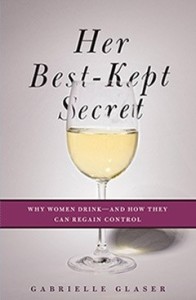 Women and binge drinking…job and financial stress…sleeplessness…caregiving challenges…sex…these were the topics covered in Health 2.0 Conference’s session aptly called “The Unmentionables.” The panel on October 1, 2013, was a rich, sobering and authentic conversation among 7 women and 1 man who kept it very real on the main stage of this mega-meeting that convenes health technology developers, marketers, health providers, insurers, investors, patient advocates, and public sector representatives (who, sadly, had to depart for Washington, DC, much earlier than intended due to the government shutdown).
Women and binge drinking…job and financial stress…sleeplessness…caregiving challenges…sex…these were the topics covered in Health 2.0 Conference’s session aptly called “The Unmentionables.” The panel on October 1, 2013, was a rich, sobering and authentic conversation among 7 women and 1 man who kept it very real on the main stage of this mega-meeting that convenes health technology developers, marketers, health providers, insurers, investors, patient advocates, and public sector representatives (who, sadly, had to depart for Washington, DC, much earlier than intended due to the government shutdown).
The Unmentionables is the brainchild of Alexandra Drane and her brilliant team at the Eliza Corporation. Founder and Chief Visionary Officer of the company, Alex and her colleagues began to connect the dots between stressors of daily living and health based on the data points gathered through their work with clients’ health plan members. Stressors negatively impact health – those mentioned in the introduction are examples of stressors that lead people to eat too much, imbibe too much alcohol, smoke, move around too little, and feel depressed. Taken together, Eliza has developed the Vulnerability Index which quantifies how much stressors negatively impact health. But stressors can be mitigated by “buffers,” like sprituality, social connections, and exercise, the data show.
Discussing the evidence and quantification of vulnerabilities, Wendy Lynch of Altarum talked about her consumer research which demonstrates that having 2 or more stressors significantly (statistically speaking) raises peoples’ health risks. This translates, for a health insurance company, to health risks that lead to spending that could have been prevented through helping people make lifestyle changes. [A note to girlfriends reading this post who may be fans of Zappos: Wendy also discussed the fact that she is a math lover who wears sensible shoes, assuming she was the only woman on the panel who fit that demographic. No, I told her afterward, look at my flat-soled ankle boots: I’m a quant-head, too! And appropriately, Zappos will appear later in this post].
Ramin Bastani, founder of Qpid.me, presented his demo of the new-and-improved app now called Hula. This tool allows people to locate quality testing centers for sexually transmitted diseases (STDs), then to store their lab results and access them when needed to share with prospective partners. The newly designed app features a virtual “zipper” which, when unzipped with the swipe of a finger down the virtual zipper, reveals the user’s profile and options available on the app. Ramin concluded his presentation with an ask: for people to “download Hula, unzip it, and get lei’d,” carrying the “Hula” metaphor to its inevitable clever outcome.
 The song “Let’s Talk About Sex” from Salt-n-Pepa then bass-boomed from the stage, and I hip-hopped up the steps from the audience onto the stage to tell Ramin that I’ve downloaded the app, unzipped it, and now I wanted my lei.
The song “Let’s Talk About Sex” from Salt-n-Pepa then bass-boomed from the stage, and I hip-hopped up the steps from the audience onto the stage to tell Ramin that I’ve downloaded the app, unzipped it, and now I wanted my lei.
Yes, I really did this, wearing the t-shirt purchased at Forever 21 emblazoned with the word “$EXY.” [I hope Eileen Fisher, my fashion brand, would have smiled at the moment in context].
I explained to the audience my bias that health is where we live, work, play, and have sex (the latter an added aspect to the Surgeon General’s mantra I often repeat). Consumer research that our team at HealthcareDIY concluded in late August 2013 found that people who cook at least 5 times a week at home, regularly save money, get more sleep, perceive higher mental health, also say they have more satisfying sex lives. These daily living aspects are mutually reinforcing for whole health. We also discovered that people who better understand the Affordable Care Act also enjoy better sex lives, a talking point that the White House might have used to more effectively market Obamacare — had they asked us about our poll. (Visit the HealthcareDIY Facebook page to learn more and “like” us).
I then introduced Dr. Leslie Schover of the MD Anderson Cancer Center to the stage. Leslie is a clinical psychologist specializing in sexuality and intimacy. Her interactive guide online, Hardtimes, helps people managing sex life after cancer treatment – think: a man post-prostate treatment and his mate re-building their intimacy. I nominate Leslie to be Health 2.0’s Dr. Ruth. She did a phenomenal job talking matter-of-factly about a topic that made many folks in the audience (esp. men) squirm in their seats.
The next speaker was no stranger to Health 2.0 — Susannah Fox of the Pew Internet & American Life Project, who spoke of her latest research into caregiver stress. This is an already huge burden which is only getting bigger: it’s uncompensated economically, unlauded emotionally, and often disabling on all levels. Caregiving is a major stressor in the Vulnerability Index.
Dr. Elissa Epel of UCSF discussed the importance of finding calm and mindfulness as a health-enhancer. Her real-time calming exercise led the group into a momentary quiet state that was most welcome in this manic meeting. Dr. Epel’s research can be mined here.
 Gabrielle Glaser then spoke of her seminal book, Her Best-Kept Secret, about the epidemic of women over-drinking alcohol. Gabrielle presented sobering data on the rise of women getting arrested for DUIs, checking into rehab, and binge-drinking on college campuses to keep up with the guys. She presented fascinating data on women’s drinking habits in other countries vis-a-vis America: while women in Spain and France may consume more alcohol per capita, they in fact have better health outcomes compared with U.S. women.
Gabrielle Glaser then spoke of her seminal book, Her Best-Kept Secret, about the epidemic of women over-drinking alcohol. Gabrielle presented sobering data on the rise of women getting arrested for DUIs, checking into rehab, and binge-drinking on college campuses to keep up with the guys. She presented fascinating data on women’s drinking habits in other countries vis-a-vis America: while women in Spain and France may consume more alcohol per capita, they in fact have better health outcomes compared with U.S. women.
Joan Kennedy, Vice President for Consumer Health Engagement at CIGNA, talked from a health plan perspective about how she and her company have woven the Vulnerability Index insight into the health plan’s programs. In particular, CIGNA has recognized the importance of local community resources in getting up-close, personal and relevant with plan members. The company is offering an innovative range of services that go well beyond traditional insurance company programs – think EAP v2.0, get up and move incentives, and see CIGNA’s Go You app marketplace.
Finally, Jenn Lim of the Delivering Happiness project discussed her work with Tony Hsieh of Zappos on how to create joy at the workplace. She said that creating a culture of health in companies goes beyond “providing free Red Bull.” We all have a tendency to want to be happy, but we don’t know how to get there. To learn more about how to drive a happy company culture in your organization, see the original book on which the concept is based.
Alex brought these various threads of daily living and health together in her concluding remarks. Her final mantra was:
Health is life
Care, absolutely
Empathy, always.
Health Populi’s Hot Points: The hard data of Susannah Fox and Pew Foundation, Eliza Corporation, Altarum, and the new data set at HealthcareDIY are all quantifying the hard fact that health is built on daily living, and mostly outside of the health system. Yet we spend most of our resources on health “care” in America. But it’s the home, the family, the workplace, the community, streets and parks and parking lots and shopping malls, that largely determine health, writ large.
It’s good that we’re mentioning the unmentionables at Health 2.0. Now, let’s go out and talk amongst ourselves in our own social networks, online and off-, to continue to bring these realities outside of the taboo-closet. We now have the data to prove that there’s an ROI for health and business to address these issues.




 I'm in amazing company here with other #digitalhealth innovators, thinkers and doers. Thank you to Cristian Cortez Fernandez and Zallud for this recognition; I'm grateful.
I'm in amazing company here with other #digitalhealth innovators, thinkers and doers. Thank you to Cristian Cortez Fernandez and Zallud for this recognition; I'm grateful. Jane was named as a member of the AHIP 2024 Advisory Board, joining some valued colleagues to prepare for the challenges and opportunities facing health plans, systems, and other industry stakeholders.
Jane was named as a member of the AHIP 2024 Advisory Board, joining some valued colleagues to prepare for the challenges and opportunities facing health plans, systems, and other industry stakeholders.  Join Jane at AHIP's annual meeting in Las Vegas: I'll be speaking, moderating a panel, and providing thought leadership on health consumers and bolstering equity, empowerment, and self-care.
Join Jane at AHIP's annual meeting in Las Vegas: I'll be speaking, moderating a panel, and providing thought leadership on health consumers and bolstering equity, empowerment, and self-care.